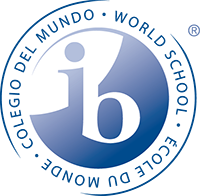Discover the transformative impact of the International Baccalaureate Programme on students'...
The Power of Mentorship in Teaching
Unlock the potential of mentorship in the teaching profession and discover its impact on professional development and leadership retention.
Defining Teacher Mentorship Programs
 Teacher mentorship programs are structured initiatives designed to support and guide new teachers in their professional development journey. These programs pair experienced educators with those who are new to the teaching profession, providing them with mentorship, guidance, and support.
Teacher mentorship programs are structured initiatives designed to support and guide new teachers in their professional development journey. These programs pair experienced educators with those who are new to the teaching profession, providing them with mentorship, guidance, and support.
The main goal of teacher mentorship programs is to help new teachers navigate the challenges and demands of their role, while also fostering their growth and development as educators. Mentorship programs aim to create a supportive and nurturing environment where new teachers can learn from experienced educators, gain valuable insights, and enhance their teaching skills.
In these programs, mentors serve as a source of guidance, advice, and inspiration for new teachers. They provide instructional support, help with classroom management strategies, offer feedback on lesson plans, and assist in navigating the school system. By creating a strong mentorship relationship, new teachers can benefit from the wisdom and experience of their mentors, enabling them to become more effective educators.
Back in 2021, Franklin Academy created our own new teacher mentor program. Each of our campuses has a full-time mentor teacher whose primary responsibilities are to provide coaching and support to staff new to teaching or just new to Franklin.
Benefits of Mentorship for New Teachers
Mentorship plays a crucial role in the professional development of new teachers. Here are some of the key benefits of mentorship for new teachers:
- Enhanced Teaching Skills: Through mentorship, new teachers have the opportunity to learn from experienced educators and gain valuable insights and strategies to enhance their teaching skills.
- Increased Confidence: Having a mentor can boost the confidence of new teachers, as they receive guidance and support from someone who has already navigated the challenges they may face.
- Emotional Support: Teaching can be a demanding and emotionally challenging profession. Mentorship provides new teachers with a support system and a safe space to discuss their concerns, challenges, and successes.
- Networking Opportunities: Mentorship programs often provide new teachers with networking opportunities, allowing them to connect with other educators and build professional relationships.
- Retention and Job Satisfaction: Research has shown that new teachers who participate in mentorship programs are more likely to stay in the profession and experience higher job satisfaction. Mentorship provides the necessary support and guidance to help new teachers overcome challenges and thrive in their role.
Creating Effective Mentorship Relationships
Creating effective mentorship relationships is essential for the success of mentorship programs. Here are some key considerations:
- Clear Expectations: It is important to establish clear expectations and goals for the mentorship relationship. Both the mentor and the mentee should have a shared understanding of what they want to achieve.
- Communication: Open and honest communication is crucial in mentorship relationships. Both parties should feel comfortable expressing their thoughts, concerns, and ideas.
- Active Listening: Effective mentors actively listen to their mentees, seeking to understand their needs, challenges, and goals. Active listening helps mentors provide relevant and tailored guidance and support.
- Trust and Respect: Building trust and mutual respect is essential in mentorship relationships. Both the mentor and the mentee should trust each other's expertise and value each other's perspectives.
- Flexibility and Adaptability: Mentorship relationships should be flexible and adaptable to the needs of the mentee. Mentors should be willing to adjust their approach and support based on the unique circumstances and challenges faced by the mentee.
By creating effective mentorship relationships, mentorship programs can maximize their impact and provide the best support for new teachers.
Challenges and Solutions in Mentorship Programs
While mentorship programs offer numerous benefits, they also come with their own set of challenges. Here are some common challenges faced in mentorship programs and potential solutions:
- Time Constraints: Mentors and mentees often have busy schedules, making it challenging to find time for regular meetings and interactions. To overcome this challenge, mentorship programs can establish structured meeting schedules and provide flexibility in meeting formats (in-person, virtual, etc.).
- Mismatched Mentor-Mentee Pairings: Sometimes, mentor-mentee pairings may not be well-suited due to differences in teaching styles, personalities, or expectations. Mentorship programs can address this challenge by implementing a thorough matching process that considers compatibility factors and preferences of both mentors and mentees.
- Limited Resources: Mentorship programs may face resource constraints, such as limited funding or a shortage of available mentors. To overcome this challenge, programs can seek additional funding sources, expand the pool of potential mentors through recruitment efforts, and leverage technology to facilitate mentorship interactions.
- Lack of Training for Mentors: Mentors may require training to effectively fulfill their role and provide meaningful support to new teachers. Mentorship programs can address this challenge by offering mentor training sessions, providing resources and materials, and facilitating ongoing professional development opportunities for mentors.
By identifying and addressing these challenges, mentorship programs can ensure a positive and impactful experience for both mentors and mentees.
Measuring Success and Impact of Mentorship
Measuring the success and impact of mentorship programs is important to ensure their effectiveness and make necessary improvements. Here are some ways to measure the success and impact of mentorship:
- Feedback Surveys: Conducting feedback surveys can provide valuable insights from both mentors and mentees. These surveys can assess the perceived benefits of mentorship, areas of improvement, and overall satisfaction.
- Student Outcomes: Analyzing student outcomes, such as academic performance and engagement, can provide an indirect measure of the impact of mentorship on teachers' effectiveness.
- Retention Rates: Tracking the retention rates of new teachers who have participated in mentorship programs can indicate the effectiveness of the program in supporting their professional development and job satisfaction.
- Qualitative Interviews: Conducting qualitative interviews with mentors and mentees can provide in-depth insights into the specific ways mentorship has influenced their teaching practice and professional growth.
- Case Studies: Conducting case studies of successful mentorship relationships can highlight best practices and success stories, serving as inspiration for future mentorship programs.
By utilizing these measurement approaches, mentorship programs can continuously evaluate their impact and make informed decisions for improvement.




Submit Comment